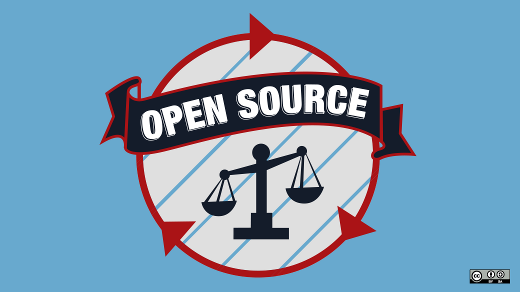Imagine what the world would look like if growth, innovation, and development were free from fear. Innovation without fear is fostered by consistent, predictable, and fair license enforcement. That is what the GPL Cooperation Commitment aims to accomplish.
Last year, I wrote an article about licensing effects on downstream users of open source software. As I was conducting research for that article, it became apparent that license enforcement is infrequent and often unpredictable. In that article, I offered potential solutions to the need to make open source license enforcement consistent and predictable. However, I only considered "traditional" methods (e.g., through the court system or some form of legislative action) that a law student might consider.
In November 2017, Red Hat, IBM, Google, and Facebook proposed the the "non-traditional" solution I had not considered: the GPL Cooperation Commitment, which provides for fair and consistent enforcement of the GPL. I believe the GPL Cooperation Commitment is critical for two reasons: First, consistent and fair license enforcement is crucial for growth in the open source community; second, unpredictability is undesirable in the legal community.
Understanding the GPL
To understand the GPL Cooperation Commitment, you must first understand the GPL's history. GPL is short for GNU General Public License. The GPL is a "copyleft" open source license, meaning that a software's distributor must make the source code available to downstream users. The GPL also prohibits placing restrictions on downstream use. These requirements keep individual users from denying freedoms (to use, study, share, and improve the software) to others. Under the GPL, a license to use the code is granted to all downstream users, provided they meet the requirements and conditions of the license. If a licensee does not meet the license's requirements, they are non-compliant.
Under the second version of the GPL (GPLv2), a license automatically terminates upon any non-compliance, which causes some software developers to shy away from using the GPL. However, the third version of the GPL (GPLv3) added a "cure provision" that gives a 30-day period for a licensee to remediate any GPL violation. If the violation is cured within 30 days following notification of non-compliance, the license is not terminated.
This provision eliminates the fear of termination due to an innocent mistake, thus fostering development and innovation by bringing peace of mind to users and distributors of the software.
What the GPL Cooperation Commitment does
The GPL Cooperation Commitment applies the GPLv3's cure provisions to GPLv2-licensed software, thereby protecting licensees of GPLv2 code from the automatic termination of their license, consistent with the protections afforded by the GPLv3.
The GPL Cooperation Commitment is important because, while software engineers typically want to do the right thing and maintain compliance, they sometimes misunderstand how to do so. This agreement enables developers to avoid termination when they are non-compliant due to confusion or simple mistakes.
The GPL Cooperation Commitment spawned from an announcement in 2017 by the Linux Foundation Technical Advisory Board that the Linux kernel project would adopt the cure provision from GPLv3. With the GPL Cooperation Commitment, many major technology companies and individual developers made the same commitment and expanded it by applying the cure period to all of their software licensed under GPLv2 (and LGPLv2.1), not only to contributions to the Linux kernel.
Broad adoption of the GPL Cooperation Commitment will have a positive impact on the open source community because a significant amount of software is licensed under GPLv2. An increasing number of companies and individuals are expected to adopt the GPL Cooperation Commitment, which will lead to a significant amount of GPLv2 (and LGPLv2.1) code under license terms that promote fair and predictable approaches to license enforcement.
In fact, as of November 2018, more than 40 companies, including industry leaders IBM, Google, Amazon, Microsoft, Tencent, Intel, and Red Hat, have signed onto the GPL Cooperation Commitment and are working collaboratively to create a standard of fair and predictable enforcement within the open source community. The GPL Cooperation Commitment is just one example of how the community comes together to ensure the future of open source.
The GPL Cooperation Commitment tells downstream licensees that you respect their good intentions and that your GPLv2 code is safe for them to use. More information, including about how you can add your name to the commitment, is available on the GPL Cooperation Commitment website.







Comments are closed.